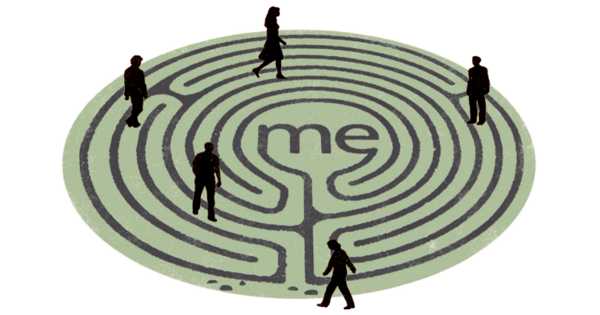The practice of mindfulness is big business. Mindfulness app downloads generate billions of dollars in revenue in the United States each year, and their popularity is growing. In addition to what individual practitioners may have on their phones, schools, and prisons, as well as one in every five employers, now provide some form of mindfulness training.
Mindfulness and meditation have been linked to decreased stress and anxiety as well as increased emotional well-being. These advantages are supported by a large number of scholarships. But how does mindfulness affect the range of human behaviors known as prosocial behaviors, which have the potential to help or benefit others? What happens when researchers focus on the social effects of mindfulness rather than its personal effects?
A new paper by University at Buffalo researchers demonstrates the surprising downsides of mindfulness while also offering simple ways to mitigate those consequences – both of which have practical implications for mindfulness training.
“Mindfulness can make you selfish,” says Michael Poulin, Ph.D., the paper’s lead author and an associate professor of psychology in the UB College of Arts and Sciences. “It is a qualified fact, but it is also correct.
A new article demonstrates the surprising downsides of mindfulness while offering easy ways to minimize those consequences — both of which have practical implications for mindfulness training.
“Mindfulness increased prosocial behaviors in people who perceive themselves to be more interdependent. Mindfulness, on the other hand, reduced prosocial behavior in people who perceived themselves as more independent.”
Given the popular perception of mindfulness as an unequivocally positive mental state, the findings appear contradictory. However, the message here is not one that undermines the efficacy of mindfulness.
“That would be an oversimplification,” says Poulin, stress, coping, and prosocial engagement expert. “Research suggests that mindfulness works, but this study shows that it’s a tool, not a prescription and that practitioners need more than a plug-and-play approach to avoid its potential pitfalls.”
The findings will be published in the journal Psychological Science in the near future.

According to Poulin, the dichotomy of independent versus interdependent mindsets is a recurring theme in social psychology. Some people think of themselves in terms of singularity or independence: “I do this.” Others, on the other hand, think of themselves as a group or as interdependent: “We do this.”
On top of these perspectives, there are cultural differences. People in Western countries are more likely to consider themselves independent, whereas people in East Asian countries are more likely to consider themselves interdependent. Mindfulness practices originated in East Asian countries, according to Poulin, and mindfulness may be more clearly prosocial in those contexts. Practicing mindfulness in Western countries removes that context.
“Despite these individual and cultural differences, there is also variability within each person, and any individual at any point in time can think of themselves in either singular or plural terms,” Poulin says.
The researchers used a two-experiment series for their study, which included Shira Gabriel, Ph.D., a UB associate professor of psychology, C. Dale Morrison and Esha Naidu, both UB graduate students, and Lauren M. Ministero, Ph.D., a UB graduate student at the time of the research who is now a senior behavioral scientist at the MITRE Corporation.
Before giving mindfulness instruction or a mind-wandering exercise to the control group, they first measured 366 participants’ characteristic levels of independence versus interdependence. Before departing, participants were informed of volunteer opportunities to stuff envelopes for a charitable organization.
Mindfulness resulted in lower prosocial behavior among those who tended to be independent in this experiment. Instead of simply measuring a trait, 325 participants were encouraged to lean one way or the other by participating in a brief but effective exercise that encourages people to think of themselves as independent or interdependent.
The mindfulness training and control procedures were the same as in the first experiment, but participants were then asked if they would sign up to chat online with potential donors to help raise money for a charitable organization.
Mindfulness reduced the likelihood of volunteering by 33% among those primed for independence but increased the likelihood of volunteering to the same organization by 40% among those primed for interdependence. The findings suggest that combining mindfulness with instructions on how to make people think of themselves in terms of their relationships and communities while practicing mindfulness may allow them to see both positive personal and social outcomes. “We need to think about how to make the most of mindfulness,” Poulin says. “We must understand how to use the tool.”
















